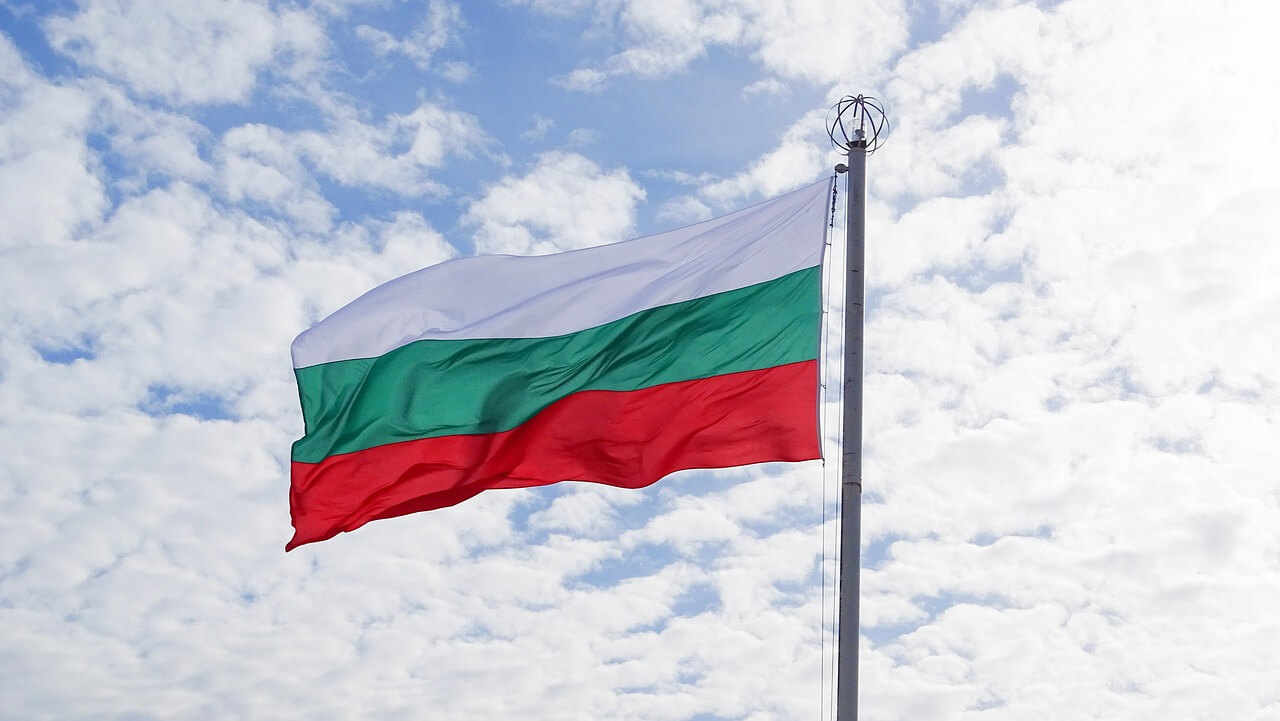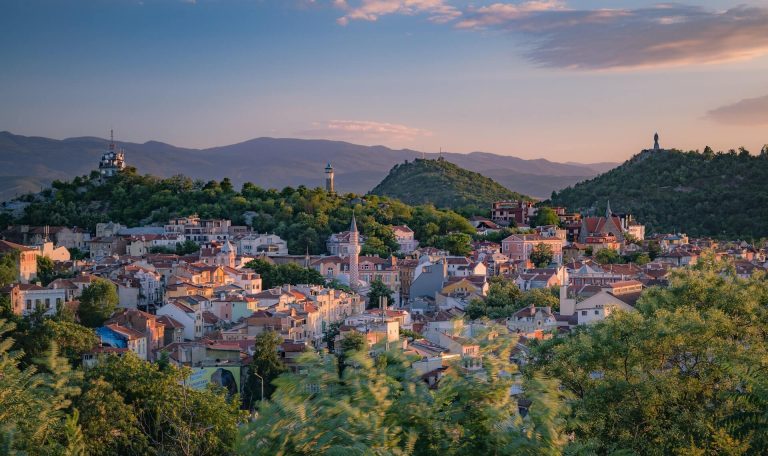If you are considering visiting Bulgaria, you are probably asking yourself – is Bulgaria safe?
The topic of safety in Bulgaria is an important consideration for travelers planning to visit the country. Located in southeastern Europe, Bulgaria has a rich history and culture that attracts tourists from around the world.
However, like with any vacation, tourists should be aware of any possible safety risks and take precautions to safeguard themselves and their belongings.
In this guide, we will look at Bulgaria’s general safety, including crime statistics, specific forms of crime to be concerned about, and the availability of emergency services.
We will also consider the safety of different cities and regions within Bulgaria and offer advice for travelers on how to stay safe while in the country.
- Is Bulgaria safe for travelers?
- Safety of different cities and regions in Bulgaria
- Types of crime concerning visitors in Bulgaria
- Car Travel and Road Safety
- Choosing safe accommodation
- Stray dogs
- Tips on protecting yourself and your belongings
- How to report a crime and important emergency numbers
- Conclusion
Is Bulgaria safe for travelers?
According to data from the United Nations Office on Drugs and Crime (UNODC), compared to other countries in Europe, the crime rate in Bulgaria is relatively low and the country is generally considered safe for travelers.
In 2018, the country had a total of 5,496 reported crimes per 100,000 population, which is lower than the average for European Union (EU) countries.
However, it is important to note that crime rates can vary significantly between different cities and regions within Bulgaria. For example, the capital city of Sofia tends to have a higher crime rate than smaller cities or rural areas.
Property crimes, such as theft and burglaries, are the most common types of crime in Bulgaria, followed by violent crimes and drug offenses.
FURTHER READING
Safety of different cities and regions in Bulgaria
Different cities and regions in Bulgaria can all have quite varying levels of safety. In comparison to smaller cities or rural areas, the capital city of Sofia typically has a higher crime rate. Since capital cities typically have greater populations and a higher concentration of tourists, which can make them more appealing targets for crime, this is not unusual.
That being said, Sofia is generally considered a safe city and most visitors do not experience any issues while there. It is advisable to always pay attention to your surroundings and take practical steps to safeguard yourself and your possessions, such as avoiding walking alone at night in poorly lit areas and keeping a close eye on your belongings in crowded areas.
Other cities in Bulgaria, such as Plovdiv and Varna, tend to have lower crime rates and are generally considered safe for travelers.
In terms of regions, the Black Sea coast, including the popular resort Sunny Beach, is also considered a safe destination for travelers, although petty crimes are more frequent there due to the high number of tourists.
Types of crime concerning visitors in Bulgaria
There are a few specific types of crime that may be of particular concern to travelers in Bulgaria.
Pickpocketing
Pickpocketing and bag thefts are the most common sorts of crime that travelers in Bulgaria may encounter. Tourists are often targeted by thieves and pickpockets, particularly in crowded areas such as airports, train stations, and public transport hubs.
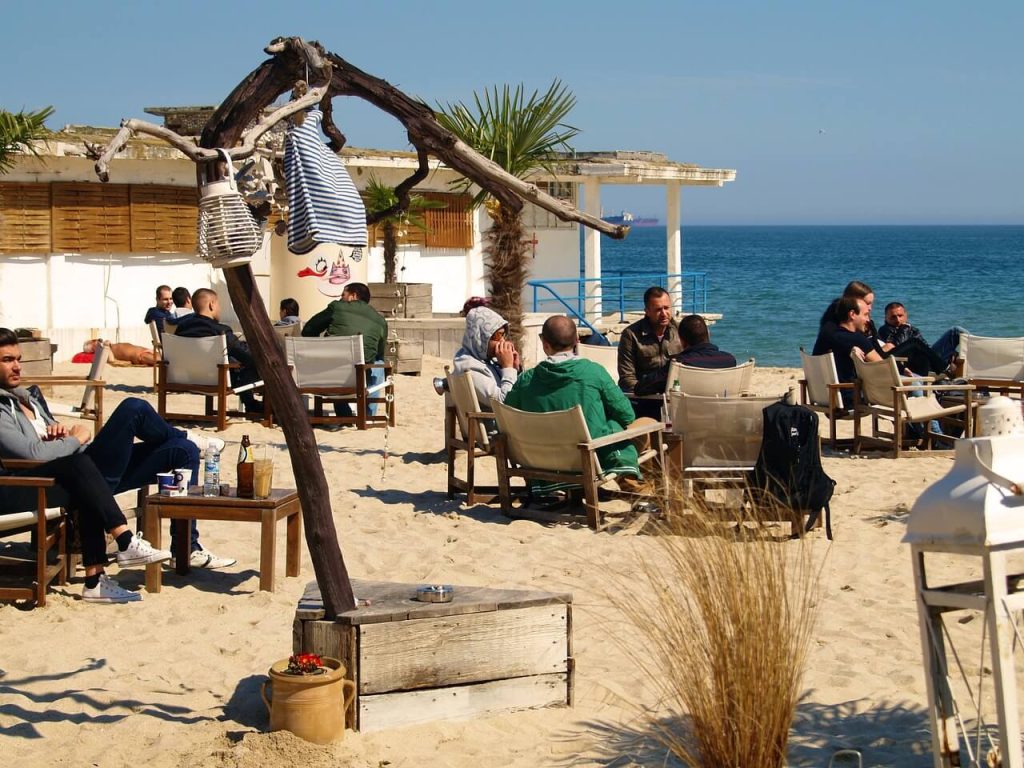
Sunny Beach and other Bulgarian resorts are famous tourist attractions, and it is necessary to be aware of the possibility of pickpocketing and other property crimes in these locations.
To avoid being a victim of pickpocketing, keep a constant eye on your valuables and be alert to what’s going on around you. Avoid carrying big sums of cash and instead opt for a money belt or a shoulder bag that may be worn across your chest.
When feasible, keep your personal possessions locked away, such as in a hotel safe or closed suitcase. If you are staying in a hotel or other type of accommodation, make sure to secure your room (including windows and balcony doors) when you are not there to protect your things.
Scams
Scams are another type of crime that visitors to Bulgaria may confront.
Scams can take many different forms. Some common scams include phony taxi drivers who overcharge for trips, street sellers who sell fake or overpriced goods, and people who try to con tourists out of money by pretending to be in need of assistance or offering unwanted services.
To avoid being a victim of a scam, be wary of strangers who approach you, and do not be afraid to say no or walk away if you feel uneasy. It is also a good idea to do some preliminary research on costs and exchange rates so you have an idea of what products should cost.
Overcharging in strip clubs
There have been reports of tourists being overcharged or threatened with violence in strip clubs in Bulgaria, particularly in the capital city of Sofia and in resorts such as Bansko, Borovets, and Sunny Beach.
To avoid these frauds, be aware of the possibility of overcharging and use caution when visiting strip clubs or other entertainment places.
Car Travel and Road Safety
Road safety is a significant factor for Bulgarian visitors because the country has a high rate of road fatalities when compared to other European countries.
According to the British Department for Transport figures, there were 463 road deaths in Bulgaria in 2020, equating to 6.7 road deaths per 100,000 people. This is much higher than the 2020 UK average of 2.3 road deaths per 100,000 people.
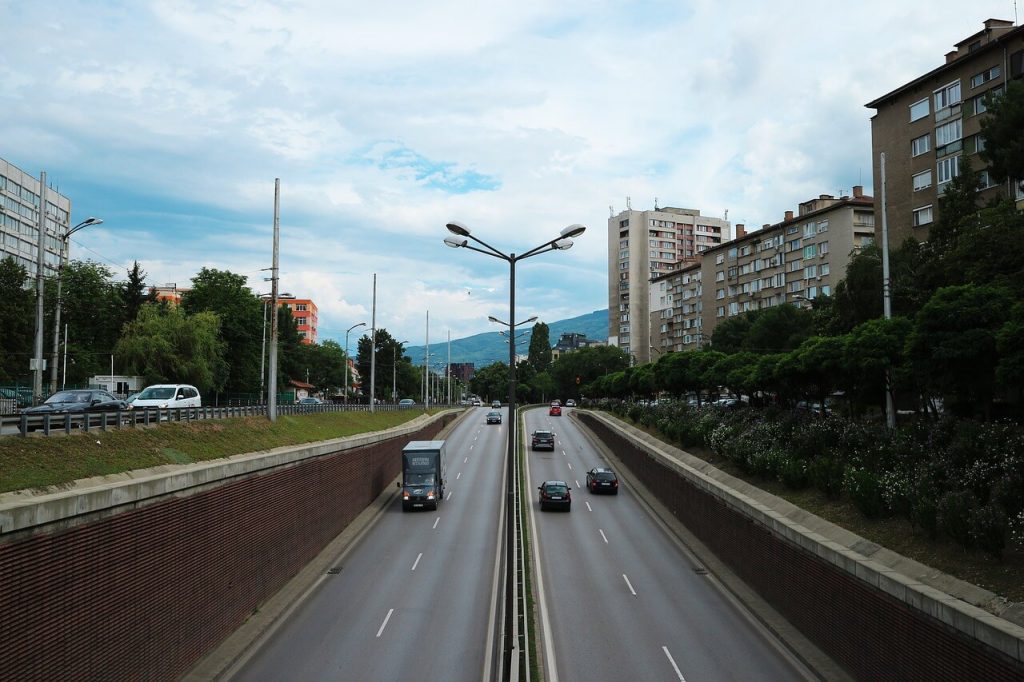
A lack of infrastructure, bad road conditions, and irresponsible driving are all factors that contribute to the high number of road deaths in Bulgaria. Travelers should be aware of these risks and take measures when driving or traveling on Bulgarian roads.
If you are planning to drive in Bulgaria, familiarize yourself with the local traffic laws and regulations. Make sure you have a valid driver’s license and all necessary documents, including registration and ownership papers and evidence of insurance.
It’s also useful to know the location of the nearest hospital and other emergency services in case of an accident.
Tire punctures and car thefts
There have been reports of car tires being deliberately punctured in Bulgaria, with thieves using this tactic to distract drivers and steal personal belongings or documents from the vehicle.
If you experience a tire puncture while driving in Bulgaria, be cautious and take precautions to protect yourself and your belongings.
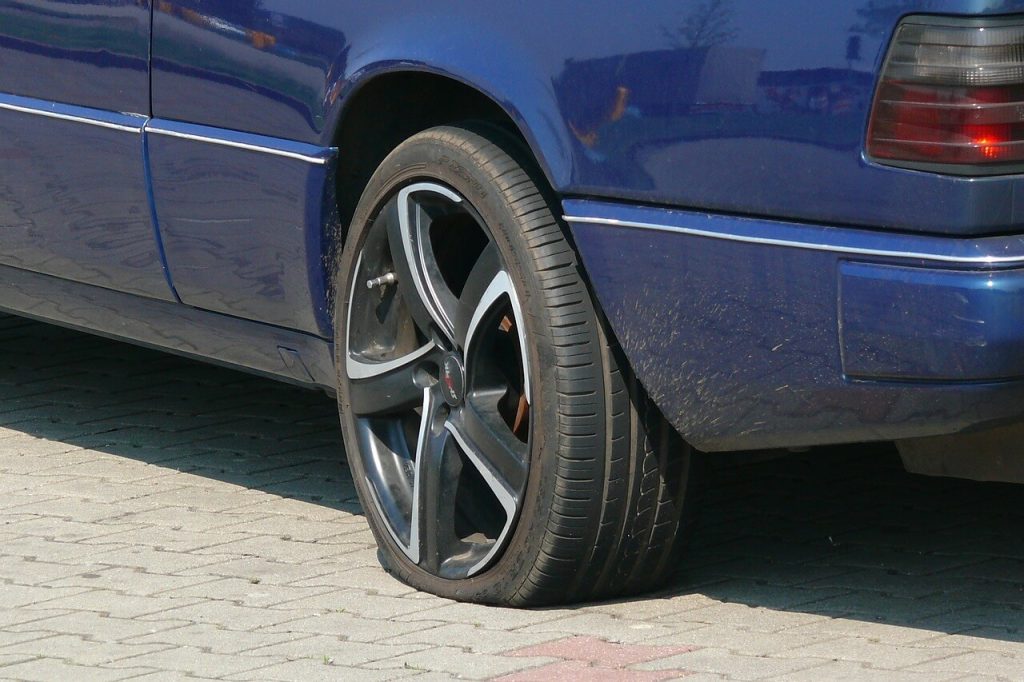
Below are suggestions to help reduce the probability of car thefts and other incidents:
1. Stay alert: Be aware of your surroundings and be wary of anyone acting suspiciously.
2. Keep your valuables safe: Avoid leaving important items in your car in plain sight, and consider utilizing a secured glove box or trunk to hold valuable documents and other items.
3. Keep your doors locked: Always keep your car doors locked, even when you’re driving.
4. Avoid stopping in isolated areas: If you must stop your vehicle due to a tire puncture or other problem, attempt to do so in a well-lit or populated place if feasible.
5. Seek help: If you are unsure of what to do or feel threatened, seek assistance from the police or other emergency services.
Taxis and hired cars
Bulgaria has a range of local travel options available for tourists, including taxis and hired cars.
Hired cars can be a convenient way to explore the country at your own pace. However, you should be aware of the local traffic laws and regulations and make sure you have a valid driver’s license and all necessary documents, including registration and ownership papers and evidence of insurance.
Taxis are plentiful and relatively inexpensive in Bulgaria, and they can be a convenient way to get around the country. Most taxis are metered, and yellow taxis are generally considered to be reliable.
However, it is important to be aware of the potential for scams or overcharging, particularly in tourist areas or at airports. Make sure you choose a reputable company and avoid hailing taxis from the street or in tourist areas.
To choose a reputable taxi company, you can:
1. Ask your hotel or tour operator to call a taxi for you: Many hotels and tour operators have relationships with reputable taxi companies and can arrange a ride for you.
2. Use an app or licensed service to book a ride: There are a number of licensed taxi booking services available in Bulgaria, such as TaxiMe or Yellow Taxi (operating in Sofia). By using one of these services, you can book a ride in advance and track your driver’s progress in real-time.
3. Look for licensed taxis: Licensed taxis in Bulgaria should have a license sticker on the window, as well as tariffs and other information displayed. Make sure you check for these markers before getting in a taxi.
4. Avoid hailing taxis from the street or in tourist areas: Taxis parked outside hotels or in tourist areas are more likely to be unlicensed or overcharge. It is generally safer to flag down a passing taxi with a green “available” light in the window or to ask your hotel or tour operator to call a taxi for you.
By following these tips and using common sense, you can help reduce the risk of being scammed or overcharged by unlicensed taxis while traveling in Bulgaria.
Choosing safe accommodation
When choosing accommodation in Bulgaria, apart from such factors as location, price, and amenities it’s also important to consider safety and security.
Here are some tips to help you choose a safe and reputable accommodation option in Bulgaria:
1. Research the location: Consider the location of the accommodation and whether it is in a safe and convenient area. Check online reviews and ask locals or your tour operator for recommendations.
2. Check for safety features: Look for accommodation options that have safety features such as 24-hour reception, security cameras, and secure locks on doors and windows.
3. Choose reputable brands or chains: Reputable brands and chains generally have higher standards for safety and security, and they are often more likely to have emergency plans in place in case of an incident.
4. Look for online reviews: Check online reviews from other travelers and pay attention to any comments about safety or security.
Stray dogs
Stray dogs are abundant in Bulgaria, and they can pose a threat to visitors. While the majority of stray dogs are usually harmless, they may turn violent if they feel threatened or are defending their territory.
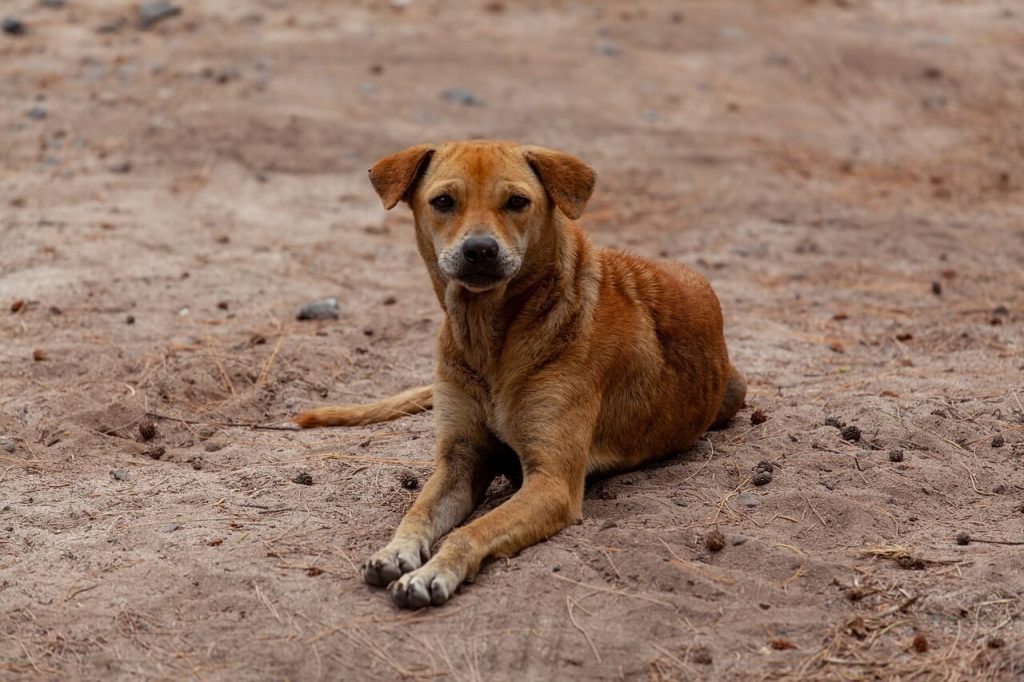
Here are some tips to help you stay safe around stray dogs in Bulgaria:
1. Avoid making direct eye contact with stray dogs: Stray dogs may perceive direct eye contact as a threat, so try to avoid looking directly at them.
2. Maintain a safe distance: If you spot a stray dog, stay on distance and give them plenty of room.
3. Don’t approach stray dogs: Avoid approaching stray dogs, particularly if they are with a pack or if they appear aggressive.
4. Don’t feed stray dogs: Feeding stray dogs may be enticing, but it is typically not a good idea since it might encourage them to grow dependent on humans and may make them more violent toward other people.
5. Follow local laws: In some areas, it may be illegal to feed or approach stray dogs. Make sure you are aware of the local laws and regulations regarding stray dogs and follow them to avoid potential legal issues.
Tips on protecting yourself and your belongings
To summarize, here are a number of precautions you can take to protect yourself and your belongings while traveling in Bulgaria. Some general tips include:
1. Be aware of your surroundings: Pay attention to your surroundings, particularly in crowded areas or at night. Avoid isolated or poorly lit areas, and trust your instincts if something feels unsafe.
2. Keep your valuables secure: Avoid carrying large amounts of cash or displaying valuable items, such as jewelry or expensive electronics. Keep your bags and wallets close to you at all times, and consider using a money belt or other secure storage option.
3. Research prices and exchange rates: Familiarize yourself with the local currency and exchange rates, so you have a rough idea of what things should cost. This can help you avoid being scammed by fake taxi drivers or street vendors.
4. Use licensed exchange points: Avoid changing money on the street or with unlicensed money changers, as this can increase the risk of being scammed. Instead, use licensed exchange points, banks, or hotels to exchange currency.
5. Lock your hotel room: If you are staying in a hotel or other accommodation, make sure you lock your room (including windows and balcony doors) when you are not there to protect your belongings. Consider using a safe or locked suitcase to store valuable items.
6. Use reputable taxi companies: If you are using taxis in Bulgaria, make sure you choose a reputable company and avoid hailing taxis from the street or in tourist areas. Ask your hotel or tour operator to call a taxi for you, or use an app or other licensed service to book a ride.
7. Have a plan: It is always a good idea to have a plan in case of an emergency, including knowing how to contact the local police, fire department, and ambulance services.
How to report a crime and important emergency numbers
If you need to report a crime or request emergency assistance while in Bulgaria, you can call the local police on 112. This number is available for all types of emergencies, including fire, ambulance, and police. We suggest keeping this number stored in your phone or written down in a safe place in case you need to use it.
If you are a victim of a crime or have observed one, you should contact the authorities as soon as possible. The police will collect your complaint and may request a statement or other information about the incident. Get a copy of the police report since it may be necessary for insurance or other purposes.
Conclusion
In summary, Bulgaria is pretty safe for travelers. In comparison to other European Union (EU) nations, the overall crime rate in the country is quite low. The local police force is typically effective at combatting crime and ensuring public safety.
There are a few specific types of crimes that tourists should be aware of, such as pickpocketing and scams. However, these sorts of crimes are not unique to Bulgaria and may be found in any country.
Sources:
- https://www.gov.uk/foreign-travel-advice/bulgaria/safety-and-security
- dataunodc.un.org/content/country-list
See more guides about Bulgaria
